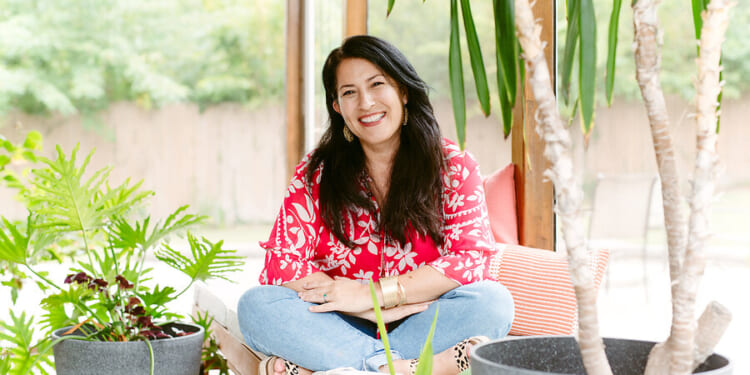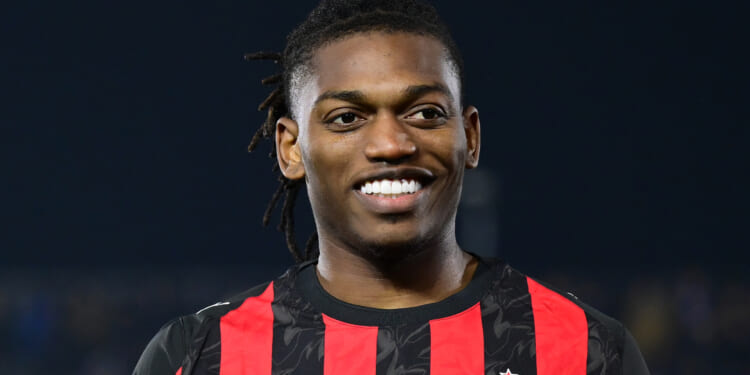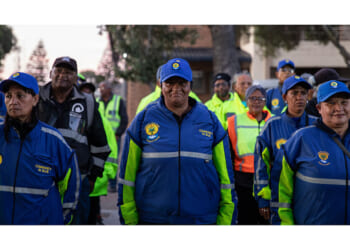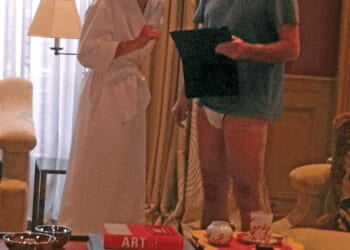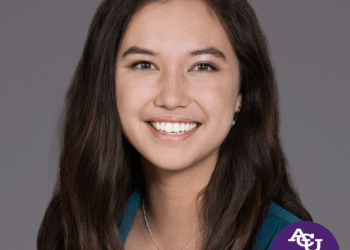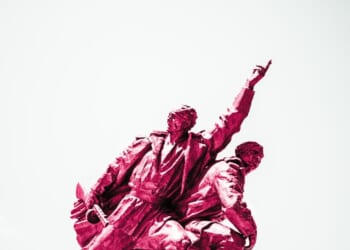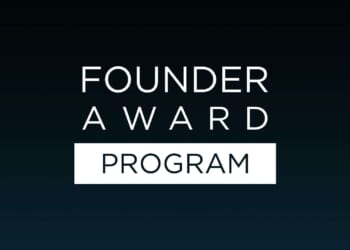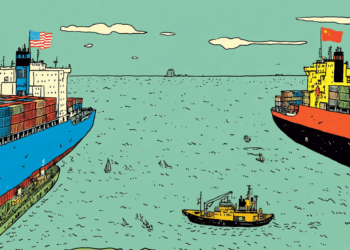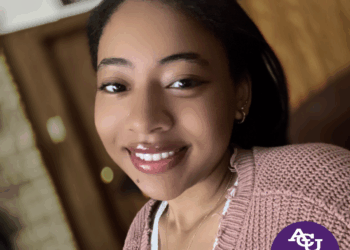In her life as a poet, Ada Limón turns frequently to a quote from Carl Jung: “The sole purpose of existence is to kindle the light in the mere darkness of being.”
Ms. Limón’s work does just that, touching an expansive audience. “I think we need to kindle and keep kindling and making sure not just that we keep lighting each other’s fires,” she says, “but also making sure that our own fire remains lit during these times.”
As U.S. Poet Laureate Ms. Limón traveled the country, working with the Poetry Society of America and the National Park Service to select and install works of poetry on picnic tables in national parks to prompt conversation and reflection. Ms. Limón is the author of seven books of poetry and served three years as poet laureate. She spoke with the Monitor just before the publication of her latest book, “Startlement: New and Selected Poems.” The interview has been edited for length and clarity.
Why We Wrote This
Inquisitiveness is a key characteristic of being human. For Ada Limón, who served three years as U.S. poet laureate, this kind of probing is “our natural state … it’s like breath.”
You’ve spoken about how poetry can challenge your views and “wobble” you off of the certainty in your heart. How do you move through that without losing your foundation?
Poetry allows you to question things, but that questioning also leads to sometimes more questions but oftentimes a place of truth, a place of a deeper knowledge. It can be as simple as questioning whether or not you are loved, and questioning it deeply enough to find the answer that you were and that you are, in many ways, and you are held by the world. I think that those questions, the more they unravel, the more that they loosen us, allow us to see some of the undeniable truths of our world, which is that we are all connected on this planet for this short, brief moment together.
Is it just a matter of accepting the initial discomfort that can come with questioning?
It’s not just accepting the discomfort, but recognizing that questioning is actually our natural state, that it’s like breath, that we don’t need to be told to be breathing. We breathe, we live. And yet sometimes we need to focus on it. If you really think about your natural state as a human being in a body, it is a curious state. It’s that we look deeply at something, and we wonder about a plant or an animal that we see, or we wonder about a problem in front of us. Curiosity is our natural state and certainty and hardness and righteousness is actually not our natural state.
In a 2022 interview with the Monitor, you characterized the country at the time as being in survival mode. What mode would you say we are in now?
[Around the country] the overwhelming feeling that I’m getting from the communities that I’ve been able to receive and witness from is anxiety. People are really scared. They’re anxious. They’re fearful. It’s a really hard place to live in. One of the nice things about being a poet is that we work in a mode that allows us to slow down and to be present and to breathe. And we naturally give ourselves tools to work through anxiety. I think poetry can be one of the many tools to help combat that anxiousness.
There are people who may be afraid to hear language that challenges their views. Poets’ and authors’ talks being are being canceled. How do you navigate that?
In many ways every poem is dangerous because it is proving again and again that you are deeply, deeply human and that you have a soul. And I think that the more we make things, and the more we gather to celebrate that making – whether it’s going to someone’s reading, whether it’s an open mic, we need to show up for each other in a way that honors our humanity. We can get overwhelmed by the state of the world, not just nationally, but globally. And I think that there’s something to be said for just taking small action in celebrating the art that’s being made in your community, or that’s coming to your community.
What prompted this collection of poems?
In many ways, it was to honor not just the past work, but the work that was done through the laureateship. I wanted the whole book to feel like one long poem. It was also quite emotional, because probably the earliest poem in the collection was written in my very early 20s. To go from 22 or 23 to 49 and to think of all the work that’s been made, you start to think of who you are. You really start to go back to the idea of curiosity and questions. What are the questions that I have kept returning to over and over again? What are the new realizations that have come to me and grown with me? What are the places and ancestors that are core to my writing life? What are the anchors that hold me?
What does it mean to be a poet right now?
For me, it really is a time to think about what it is to be human and what that means as we move forward for the next 100 years. Poets often are very good at the myopic and being present, deeply looking, paying attention. But I think we’re also good at the long view, expanding outward, thinking about the planet itself, thinking about what happens when neither you nor I are here. So I think that it’s about witnessing, paying attention, and being curious about who we are as individuals and as a collective. It’s both pensive and it’s complex. Because there’s so many minutes to a day, and there’s so many thoughts in a minute, and I’m really lucky that poetry is a place to hold all of it. That’s really important to me, that I have some place to hold it. Because I think all of us right now need to be held.
Startlement, by Ada Limón
It is a forgotten pleasure, the pleasure
of the unexpected blue-bellied lizardskittering off his sun spot rock, the flicker
of an unknown bird by the bus stop.To think, perhaps, we are not distinguishable
and therefore no loneliness can exist here.Species to species in the same blue air, smoke—
wing flutter buzzing, a car horn coming.So many unknown languages, to think we have
only honored this strange human tongue.If you sit by the riverside, you see a culmination
of all things upstream. We know now,we were never at the circle’s center, instead
all around us something is living or trying to live.The world says, What we are becoming, we are
becoming together.The world says, One type of dream has ended
and another has just begun.The world says, Once we were separate,
and now we must move in unison.
Ada Limón, “Startlement,” from Startlement: New and Selected Poems (Minneapolis: Milkweed Editions, 2025). Copyright © 2025 by Ada Limón. Reprinted with the permission of Milkweed Editions, milkweed.org.

